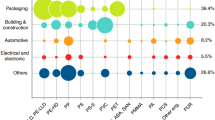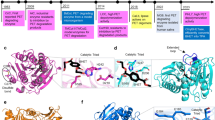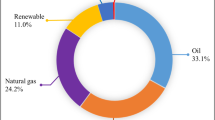Abstract
Catalytic coprocessing of model and waste plastics with light Arabian crude oil residue was investigated using NiMo/Al2O3, ZSM-5, FCC, and hydrocracking catalysts. Reaction systems that were studied included low density polyethylene (LDPE), high density polyethylene (HDPE), polystyrene (PS), and polypropylene (PP). A series of single (plastic/catalyst) and binary (plastic/resid/catalyst) reactions were carried out in a 25-cm3 micro autoclave reactor under different conditions of weight and type of catalyst, duration, pressure, and temperature. The optimum conditions selected for our work were: 1% catalyst by weight of total feedstock weight, 60 min reaction time, 8.3 Mpa of H2, and 430°C. The product distribution for the binary system using plastic and petroleum residue provided some encouraging results. High yields of liquid fuels in the boiling range of 100°–480°C and gases were obtained along with a small amount of heavy oils and insoluble material such as gums and coke. In general, this study helps to demonstrate the technical feasibility of upgrading both waste plastics and petroleum resid, as well as an alternative approach to feedstock recycling.
Similar content being viewed by others
Author information
Authors and Affiliations
Corresponding author
Rights and permissions
About this article
Cite this article
Ali, M., Nahid, M. & Redhwi, S. Study on the conversion of waste plastics/petroleum resid mixtures to transportation fuels. J Mater Cycles Waste Manag 6, 27–34 (2004). https://doi.org/10.1007/s10163-003-0102-x
Received:
Accepted:
Issue Date:
DOI: https://doi.org/10.1007/s10163-003-0102-x




